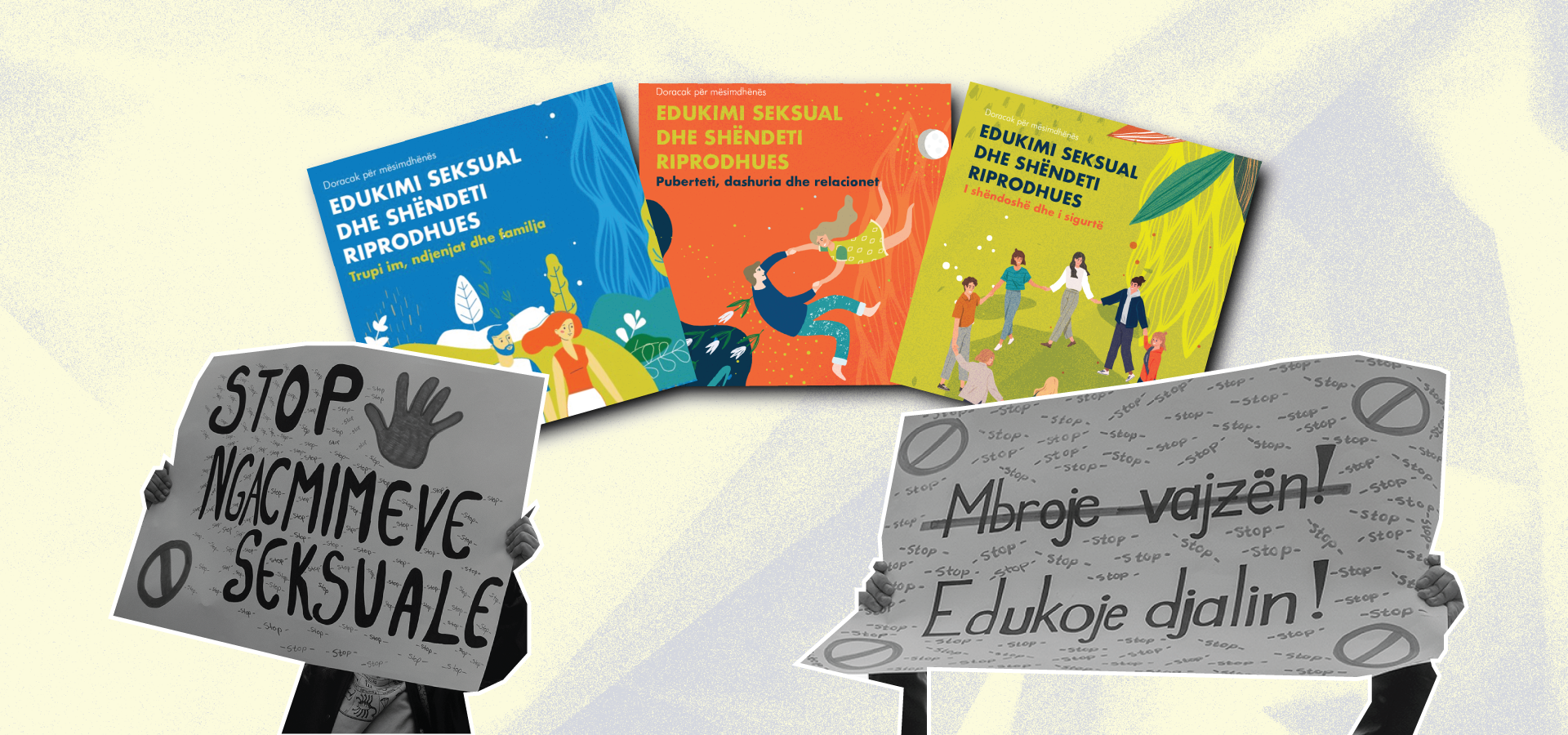
What are you protecting children from?
From their right to knowledge.
Above all, the government failed to avoid getting caught in a narrow discussion centered around the problematic dichotomy of whether we are pro-family or anti-family.
Girls would grow up without having to fight for their lives every day.
With sex education, boys would learn that the sexual and bodily freedom of girls is not a topic they have a say in.

Aulonë Kadriu
Aulonë Kadriu is a K2.0 senior editor. She has a bachelor’s degree in political science from the University of Prishtina and a graduate certificate in women, gender, and sexuality studies from the University of Kansas, U.S.
DISCLAIMERThe views of the writer do not necessarily reflect the views of Kosovo 2.0.
This story was originally written in Albanian.